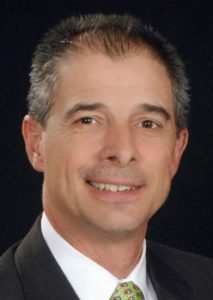I’ve got nothing. Zero. Zilch. Nada.
It never has happened before, but I’ve been trying to write this piece since Jan. 6. And I’ve got nothing.
For about five years, I’ve enjoyed this platform. Many would give their writing hand for a venue like this — and I am so deeply humbled and grateful. It has been challenging and wonderfully fulfilling. Over the years I have had kind responses from so many of you, and from new friends around the country and as far away as England. Along with a weekly church newsletter column and a monthly op-ed that I write for my hometown newspaper — another honor, and its own challenge — I have had a chance to express my thoughts, share my opinions more broadly than most pastors, and with a more diverse audience.

Russ Dean
I never have struggled for something to say. But as I write these words, on the evening of Jan. 19, I’ve got nothing.
Oh, it’s not that I’m without opinions at this decisive moment in U.S. history. It’s not that I’ve not shouted those opinions in every one of those conversations that are constantly being waged inside my head, not that I’ve not railed in disappointment and dismay, fear and anxiety about the current, sad state of affairs for Christ’s church and my nation. It’s not that I was not horrified at the Jan. 6 insurrection, angered by the disgusting display of Christian nationalism with its idolatrous abuse of Christian symbols. And it’s not that the sight of those 400 lights, glowing tonight across the Lincoln Memorial reflecting pool, a physical symbol of national lament and mourning, a first official act and shining evidence of leadership with compassion — it’s not that that sight, that leadership did not almost bring me to tears.
No, there are plenty of words, perhaps too many. It’s not that there are no words, it’s that in this unique moment I cannot find the way to speak them with the clarity and with the calm the moment deserves, with the prophetic courage and with a pastoral care people need. A dozen times I started and stopped. I wrote and revised. I thought and rethought.
Finally, I decided I would be honest, just as brutally honest as I could possibly be. I decided I would write to my church and then share that message with this, my broader congregation.
“It’s not that there are no words, it’s that in this unique moment I cannot find the way to speak them with the clarity and with the calm the moment deserves.”
“An Open Letter to my Congregation” began, “They say confession is good for the soul, and I need to confess that I’ve been angry for four years — and embarrassed that I have not been fully able to overcome that.” I wrote for four tortured days. I filled four pages with my fears (that I feared had been realized). I asked two trusted confidantes to read for me, and we finally agreed: Maybe it was a little too honest.
There is so much to say. I never have had more concern. My patriotism never has been more passionate. My belief in, and concern for the church I love, never has been more visceral. In the crucible of those divided, sometimes conflicting loyalties, my anger never has been more raw.
But I want to be part of the solution. Although the prophetic word is challenging, sometimes marking a thin line that is difficult to discern, I always have wanted my words to offer healing, not hurt. In this moment, however, filled with fear and anger, disgust and dismay, disappointment and disillusionment, and trying to find hope, I just cannot conjure words that I think would be helpful.
“Maybe there are just too many words. None of them seems right for today.”
I mostly preach to the choir, and I don’t know that more cheers and at-a-boys, amens and maybe a haughty you-got-him-told would add anything productive to the mix. Those I would like to hear what I would like to say aren’t my usual readers, and they likely would not be able to hear my honesty. Maybe there are just too many words. None of them seems right for today.
For the LORD was not in the wind, or the earthquake, or the fire … but in the sound of sheer silence (1 Kings 19).
Today, I am going to have to lean into that. The sheer silence. The voice of God — beyond my anger, and yours, our fears and theirs, beyond the incessant arguments, the heartbreaking lies, the din of insurrection, the pain of a church divided. Maybe in the silence, we will find Truth.
I’ve got nothing. Especially today, I hope God can work with that.
Russ Dean serves as co-pastor of Park Road Baptist Church in Charlotte, N.C. He holds degrees from Furman University, Southern Baptist Theological Seminary and Beeson Divinity School. He and his wife, Amy, have been co-pastors of Park Road since 2000. They are parents of two sons. Russ is active in social justice ministries and interfaith dialogue.


